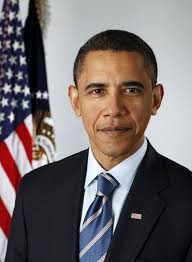President Barack Obama was never going to be a champion of civil liberties; he leads a growing sect of the Democratic party that prioritizes the collective good and mass innovation over individualism. This coercively inclusive political philosophy feels that every citizen, business, country, and institution has an obligation to contribute to the common good.
Obama will mandate universal health coverage but let private insurers run the programs. He’ll maintain Middle Eastern wars but work with Russia on global nuclear disarmament. Expand the education budget but give more resources to union-less charter schools, and build online tools to monitor stimulus spending while collecting phone records of every American.
The philosophy is a mix of fierce anti-individualism and anti-authoritarianism–what political scientists call “communitarianism.” “In the my wildest dreams, during eighteen years of championing communitarianism, I did not expect a presidential candidate to be as strongly identified with this political philosophy as Obama is,” gushed George Washington Professor of philosophy, Amatai Etzioni.
Established liberal institutions have always worried that communitarian optimism was blind to the damage government agencies and big business could exact on society’s most vulnerable. Since 9/11, the most prominent communitarians have generally defended mass NSA and FBI spying against the fears of their liberal cousins.
“The key issue is not if certain powers-for example, the ability to decrypt e-mail-should or should not be available to public authorities, but whether or not these powers are used legitimately and whether mechanisms are in place to ensure such usage,” said Etzioni, in regard to a series of high-profile debates with former ACLU president, Nadeen Strossen, during the post-9/11 ramp-up to the Patriot Act.
Communitarians are generally okay with privacy invasion, so long as there is sufficient public oversight to make sure the government is doing its job.
“For communitarians, public safety generally comes first,” University of Southern California Professor Brian Rathbun writes to me in an email. “A key element of Obama’s personal philosophy is on the merits of cooperation, that collective enterprises yield greater gains than individual action.”
The obsession with mass collaboration largely explains much of Obama’s failing civil liberties record, across the board, as he’s also been an unqualified proponent of experimental charters, which reject the job stability of traditional schools.
Obama is not the only rabid communitarian. New York Mayor Michael Bloomberg has distinguished himself as a collaboration and drone-happy public servant: he’s ok blanketing the city with law-enforcement drones and reportedly threatened to “F***cking destroy” the taxi industry over issues with Uber.
Bloomberg, first and foremost, wants innovation over protectionist policies. During a press conference, Bloomberg told me that taxi unions were part of “the old entrenched industries that try to use the shield of regulation…to protect them from the kind of competition that benefits society.”
Closing the door on civil liberties, however, has opened up some exciting opportunities for innovative policy making. For instance, ObamaCare included a “waiver for state innovation” that exempts any state from the new healthcare law, so long as states can cover everyone without increasing costs. In essence, it’s like Google’s 20 percent time. Everyone has to innovate and hopes that someone will come up with the best solution to healthcare. It’s radically optimistic about the power of individual creativity, but refuses to allow citizens or states to be spectators (hence, the core of the name “community”).
Notably, it’s quite easy to spot communitarians based on who Silicon Valley’s deep-pocketed donors are supporting. While the Bay Area gave more to Obama than either Wall Street or Hollywood (Los Angeles), they only give to a few candidates.
Newark Mayor and Senate candidate Cory Booker is a Silicon Valley favorite and has focused the $100 million education donation he got from Mark Zuckerberg on controversial charter schools. It should be no surprise that the union-less, privacy-skittish social network is itself a communitarian totem.
Facebook has aggressively fought FTC regulations to deny its ability to automatically enroll users in new products (“opt-in”). Facebook has argued that if users had been required to opt-in to the newsfeed, the initial privacy hysteria would have blunted adoption of a tool that is now a stable of social networking. Just like in a community, participation and sharing are the default assumptions; privacy and isolation is left as an inconvenient anti-social option.
Together with their friends in Silicon Valley, communitarians are becoming a dominate force in society. To the extent that readers optimistically believe that cooperation between foreign governments, big business, and everyday citizens can yield collective prosperity, the growing power of the communitarian Democratic is a welcome change. For those who fear that we live in a zero-sum world between the powerful and weak, communitarians are blindly leading us into an unequal, rights-free society.
If you’d like to learn more, read my full OpEd on The Daily Beast.
